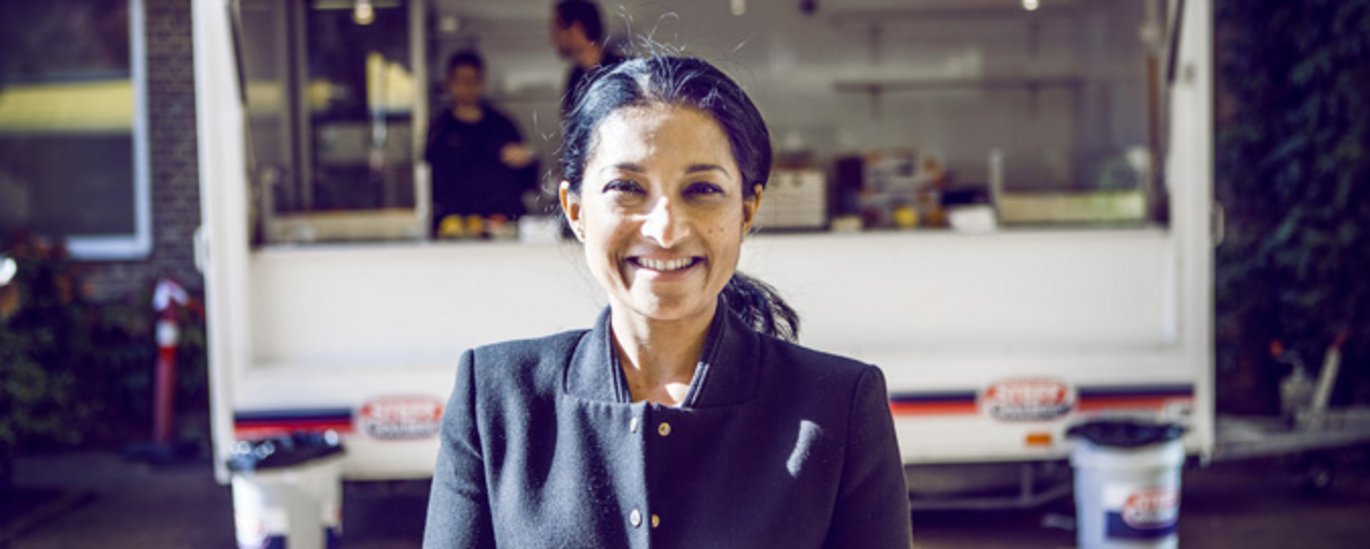Why are Danes so weird?
The cultural encounter (or conflict) between Danish and international researchers was on the agenda at a seminar on internationalisation entitled “Researchers without Borders”, organised by the PhD Association at the Faculty of Health.

“International researchers sometimes say that it’s difficult to get to know the Danes and hard to become fully integrated in Danish society. The seminar was designed not only for international researchers trying to find the key to Danish culture and ensure the success of their stay here; but also for Danish students whose PhD programme takes them abroad, and who are interested in finding out what kind of cultural baggage they’ll be taking with them,” explains Sara Heebøll. She is a doctor and a PhD student, as well as being one of the organisers of the event.
I like the Danes a lot, but…
Nivedita Eskesen, a cultural consultant from the Living Institute, has specialised in cultural differences, including aspects of Danish culture which other nationalities might find difficult. She started the seminar by having a slight dig at the Danes.
She doesn’t want people to get her wrong. She has lived here for 12 years now, and likes the Danes a lot. But various studies (including the Expat Study in 2010) indicate that other people regard the Danes as cold, reserved, lazy, impolite, unsophisticated, disobedient and naive. Danish culture is actually very different from many other cultures in the world, she said.
No special treatment
Nivedita Eskesen describes Danish culture as a homogeneous tribal culture characterised by values such as equality, consensus, trust, autonomy, and the ability to balance family life and working life.
She acknowledges that these are fantastic values to possess, but says there is also a reverse side of the coin.
For instance, the trust that the Danes have in each other combined with their great social equality means that they communicate in a very direct manner, which might take a bit of getting used to.
She also says that everyone is equal in Denmark, so you don’t get any special treatment. Danes address everyone in the same way. At first this seemed rude to her – until she realised that this was also how the Danes talked to each other.
She adds that the Danes don’t try to build up special relationships to generate trust because they already assume that they can trust other people. There’s no reason to start a conversation with small talk, so the Danes are very direct. Think of the way you talk to your family. That’s how the Danes talk to each other.
This rather direct form of communication is also prevalent in the workplace. The Danes are always happy to say what they think – even when they have not been asked. And when you are given a task to do, it’s like people are saying “Here’s what I want you to do, and that’s the deadline. Now it’s up to you”.
In her view this sometimes comes across as an unhelpful attitude demonstrating a lack of interest. But the Danes trust you to get the job done on your own. If you want any help or input, you have to ask for it, she says.
Who do you think you are?
You also have to remember the Danish “Who-do-you-think-you-are” law, known in Danish as Janteloven. Even though you’re welcome to think outside the box, you should never imagine that you can come here from another country with a load of new ideas. Nobody is allowed to think they are any better than anyone else. This is also the flip side of the strong sense of equality that pervades Denmark, in Nivedita Eskesen’s view.
She smiles as she points out that in Denmark you need to present good ideas with a healthy dose of humility. For instance by saying “I don’t mean to boast, but could we try …?” And she underlines that she is speaking from experience.
Take your time
Proper insight and knowledge is the way to understand the slightly weird Danish culture. And the negative view of the Danes presented by Nivedita Eskesen above does not necessarily last over time.
According to Eskesen, this is how the Danes seem at first glance. But it’s only the tip of the iceberg. Anyone who is prepared to dig a bit deeper can gain insight into the underlying values that motivate the Danes – and they are often impressed at how positive and strong they are.
Tips for Danes abroad
- Remember that you’re the one who’s different, and that your way of doing things is not necessarily the best way.
- Identify your own cultural baggage, and remember that it’s dangerous to see other people’s culture through your own values.
- Be open-minded and sociable, and find someone to ask about anything you don’t understand about other cultures.
- Learn about other cultures – this is the way to create understanding.
- Find the common ground. No matter how different you are, there’s bound to be some common ground.
Tips for other nationalities in Denmark
- Find out about Danish culture and interact with the Danes.
- You’re the one who has to take the initiative. Be sociable, but when you invite Danes to come and visit you always give them three or four weeks’ advance notice. The Danes are busy people, and are not spontaneous.
- Be patient. The Danes are like coconuts – once you’ve cracked their hard shell, you’ll find something sweet and long-lasting inside.
- If all else fails, just say “Cheers”.
Source: Nivedita Eskesen, Living Institute
Translation by Nicholas Wrigley

